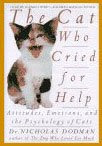 It always gives me a thrill when a book I'm reading refers to another one I know well. Many years ago I read In the Shadow of Man, a book on wild chimpanzees in Gombe by scientist Jane Goodall, and was totally enthralled. Last week I stumbled upon The Chimps of Mt. Asserik in a garage sale. It is also about chimps in Africa. The author, Stella Brewer, grew up in a house full of pets and rescued orphaned wildlife. Eventually she and her father established a piece of wilderness in the Gambia as a national park, where they built a center for orphaned chimpanzees. Brewer was shocked one day to see a chimp capture and eat a monkey, having assumed them to be vegetarian. She found through reading Goodall's book that chimps do eat meat, a discovery Goodall had recently made herself. Brewer visited Gombe to learn more from Jane Goodall and observe wild chimpanzees. She returned to Gambia with dreams of rehabilitating chimps to the wild and eventually found an area around Mt. Asserik in Senegal where she taught and released eight different chimps. The most wonderous aspects of this book are examples of the chimpanzees' high intelligence, keen observation and ability to learn, portraits of their strong personalities and the inspirational work of one woman dedicated to improving their lives.
It always gives me a thrill when a book I'm reading refers to another one I know well. Many years ago I read In the Shadow of Man, a book on wild chimpanzees in Gombe by scientist Jane Goodall, and was totally enthralled. Last week I stumbled upon The Chimps of Mt. Asserik in a garage sale. It is also about chimps in Africa. The author, Stella Brewer, grew up in a house full of pets and rescued orphaned wildlife. Eventually she and her father established a piece of wilderness in the Gambia as a national park, where they built a center for orphaned chimpanzees. Brewer was shocked one day to see a chimp capture and eat a monkey, having assumed them to be vegetarian. She found through reading Goodall's book that chimps do eat meat, a discovery Goodall had recently made herself. Brewer visited Gombe to learn more from Jane Goodall and observe wild chimpanzees. She returned to Gambia with dreams of rehabilitating chimps to the wild and eventually found an area around Mt. Asserik in Senegal where she taught and released eight different chimps. The most wonderous aspects of this book are examples of the chimpanzees' high intelligence, keen observation and ability to learn, portraits of their strong personalities and the inspirational work of one woman dedicated to improving their lives.Rating: 4/5 302 pages w/77 photographs, 1978
























